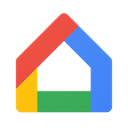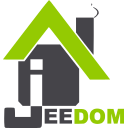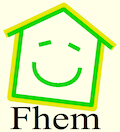Top domogik Alternative Solutions for Smart Home Automation
Domogik is a powerful, free, and open-source home automation solution (GPLv3) designed to give you comprehensive control over your smart home. From managing lights and shutters to monitoring temperature and electricity, creating complex scenarios, and even offering voice control, domogik provides a robust platform for home independence. However, like with any software, users might seek a domogik alternative for various reasons, including specific feature needs, platform compatibility, community support, or simply exploring different approaches to smart home management. This guide explores some of the best alternatives available, helping you find the perfect fit for your smart home ecosystem.
Best domogik Alternatives
Whether you're looking for a more extensive feature set, different platform support, or a larger community, these alternatives offer compelling options to enhance your home automation experience, much like domogik aims to do.

openHAB
openHAB is a vendor and technology-agnostic open-source home automation platform, making it an excellent domogik alternative for those seeking flexibility. It's available on Free, Open Source, Mac, Windows, Linux, Web, Android, iPhone, Android Tablet, iPad, Self-Hosted, and Kodi. Key features include support for KNX, a modular system, support for multiple protocols and vendors, privacy focus, MQTT, Alexa integration, Broadlink, HomeKit integration, IFTTT integration, Java, Philips Hue, Z-Wave, and Google Home integration. Its broad compatibility and community-based development make it a strong contender.

Home-Assistant.io
Home-Assistant.io stands out as an open-source and privacy-first domogik alternative, emphasizing local control and backed by a worldwide community. It runs efficiently on Raspberry Pi or a local server and is compatible with Free, Open Source, Mac, Windows, Linux, Android, iPhone, BSD, Self-Hosted, Python, Raspberry Pi, and Kodi. Notable features include being ad-free, configurable, Alexa integration, Arlo integration, Google Home integration, HomeKit integration, IFTTT integration, a modular system, MQTT, and voice commands. Its strong focus on privacy and local control makes it a compelling choice.

Google Home
Google Home is a free domogik alternative focused on managing Chromecast, Chromecast Audio, and Google Home devices. It's available on Free, Windows, Android, iPhone, Chrome OS, Android Tablet, iPad, and Chrome. Its primary features include apps with Chromecast Support and support for IPTV. While more focused on media casting and smart speakers, it provides a user-friendly interface for Google-centric smart homes.

Home
Apple's Home app is a free domogik alternative for users within the Apple ecosystem. It allows secure control of all HomeKit accessories from your iPhone, iPad, and Apple Watch. Its key feature is being seamlessly integrated into iOS, offering a native and intuitive experience for Apple users to manage their smart homes.

ioBroker
ioBroker is an open-source integration platform for the Internet of Things, serving as a versatile domogik alternative with a focus on Smart home, Building Automation, Smart Metering, and more. It runs on Free, Open Source, Mac, Windows, Linux, Web, Android, iPhone, iPad, Self-Hosted, and Node.JS. Features include Alexa integration, high availability, visual programming with a Blockly Editor, support for KNX, a modular system, support for multiple vendors, and voice commands. Its broad scope and visual programming make it very accessible.

Domoticz
Domoticz is another excellent open-source home automation system that acts as a direct domogik alternative for monitoring and configuring various devices like lights, switches, and sensors. It is available on Free, Open Source, Mac, Windows, and Linux. A notable feature is its support for Xiaomi MiHome devices, offering a straightforward approach to managing a diverse range of smart home sensors and actuators.

Android Things
Android Things is a free domogik alternative for developers looking to build connected devices for a wide variety of applications. It's built on the Android platform, making it accessible for Android developers. Key features include hardware monitoring and remote monitoring capabilities, providing a robust framework for IoT device development.

Jeedom
Jeedom is a complete home-automation software available as a free personal edition. It runs on Linux, My Sensors, Raspbian, and Raspberry Pi. Jeedom allows users to manage security, automate heating, and much more, making it a comprehensive domogik alternative for self-hosted solutions. Its focus on security and automation for energy efficiency is a key selling point.

HomeGenie
HomeGenie is a free and open-source home automation server for the Internet of Things era. It serves as a versatile domogik alternative, compatible with Free, Open Source, Mac, Windows, Linux, Android, Android Tablet, Windows Phone, and Self-Hosted. Features include support for DLNA, Philips Hue, portable operation, voice control, and Z-Wave, making it a flexible solution for various smart home setups.

FHEM
FHEM (TM) is a GPL'd perl server for house automation, functioning as a robust domogik alternative for automating household tasks like switching lamps, shutters, and heating. It's compatible with Free, Open Source, Mac, Windows, and Linux. Its core functionality revolves around a LAMP stack, providing a reliable backbone for home automation.
Choosing the right domogik alternative depends entirely on your specific needs, existing smart home devices, and technical comfort level. Whether you prioritize open-source flexibility, ease of use, specific platform integration, or a particular set of features, there's a solution out there to help you build the smart home of your dreams. Explore these options and find the best fit for your home automation journey.